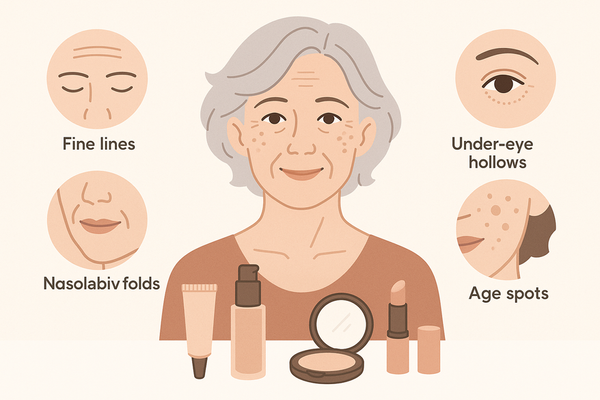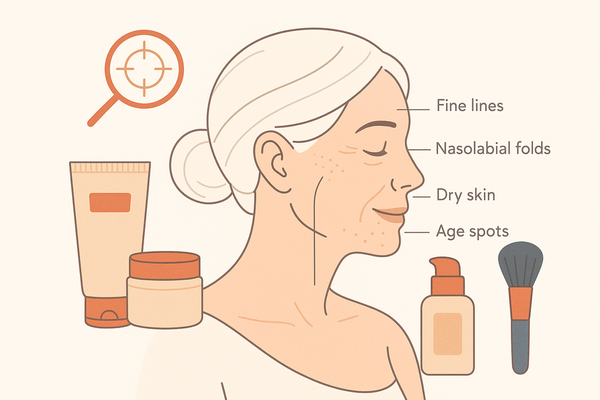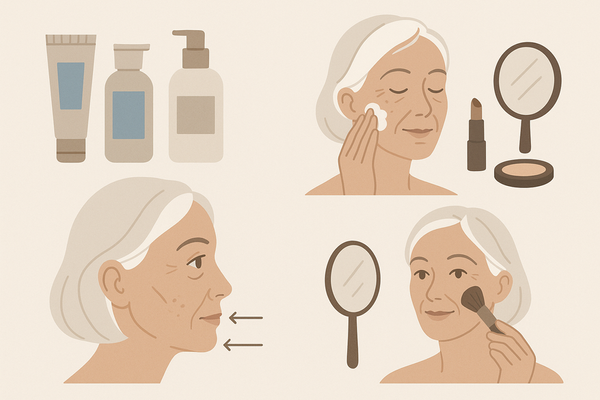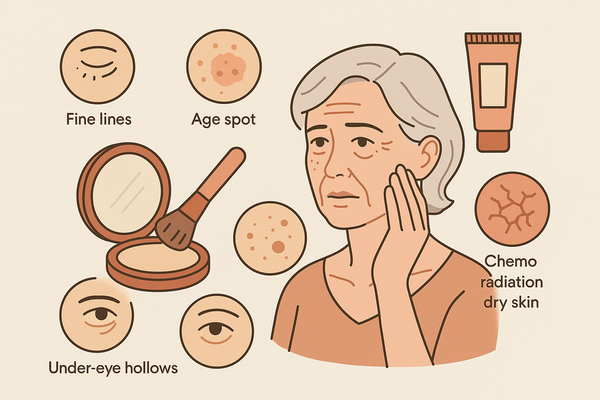AI-Powered Biotech Makeup Innovations: Revolutionizing the Beauty Industry
Explore how AI-powered biotech makeup innovations are transforming the beauty industry with personalized, safe, and sustainable products meeting consumer demands.
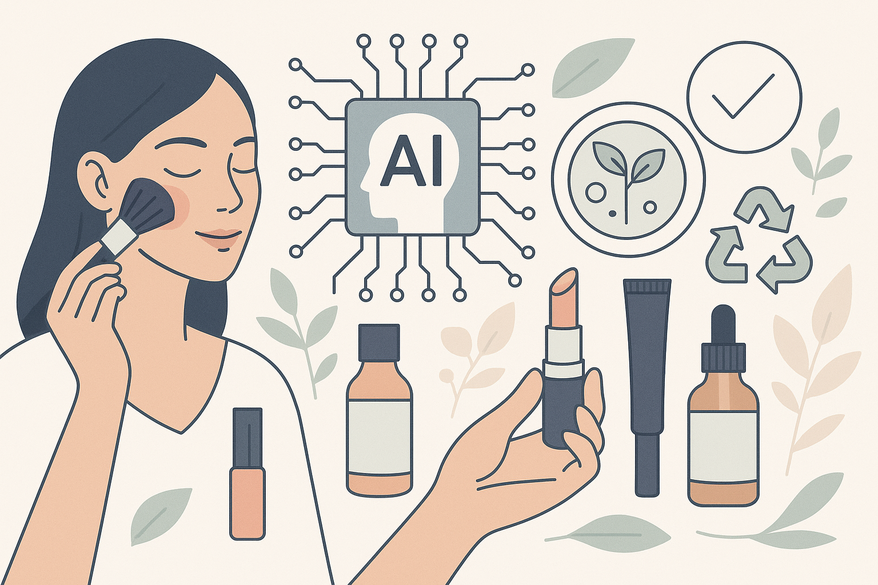
Estimated reading time: 8 minutes
Key Takeaways
- Personalization at scale: AI analyzes skin data and DNA to tailor formulations.
- Biotech actives: Lab‐engineered peptides, stem‐cell growth factors, and bio‐polymers enhance safety and performance.
- Sustainability focus: Fermentation, biodegradable polymers, and zero‐waste processes reduce environmental impact.
- Innovation synergy: Collaboration between AI developers and biotech R&D accelerates novel ingredient discovery.
- Ethical vigilance: Data privacy, regulatory compliance, and transparent sourcing underpin responsible progress.
Table of Contents
- Introduction
- Background and Context
- The Role of AI in Biotech Makeup Innovations
- Case Studies of AI Integration
- Exploring Biotechnological Advances in Makeup
- Intersection of AI and Biotech in Driving Innovation
- Consumer Benefits and Market Impact
- Challenges and Ethical Considerations
- Future Trends and Predictions
- Conclusion
- FAQ
Introduction
AI-powered biotech makeup innovations combine machine‐learning algorithms with lab‐engineered bioactives to create cosmetics tailored to each user’s unique skin profile. This new era addresses rising demands for safety, sustainability, and personalization as brands automate ingredient discovery, analyze skin data at scale, and speed up formulation processes.
For a deep dive into other cutting-edge beauty technologies and sustainable trends, innovative beauty product technologies, and clean beauty makeup trends.
Tools like Makeup Check AI illustrate the real-world impact of AI-powered cosmetic diagnostics and customization.
Background and Context
Biotechnology in cosmetic science uses lab-engineered, nature-identical ingredients—such as peptides, stem cells, and bio-based polymers—to boost product safety and performance. Key advances include:
- Peptides designed via cell-culture for targeted repair
- Stem-cell-derived growth factors that support renewal
- Bio-based polymers for enhanced texture and hydration
Traditional makeup relied on mineral powders or plant-animal extracts with limited customization. Biotech makeup replaces these with lab-designed actives and sustainable materials, reducing allergen risks and environmental impact. Brands now apply AI to:
- Mine big datasets for novel bioactives
- Run digital simulations of clinical trials
- Predict stability and efficacy through modeling
The Role of AI in Biotech Makeup Innovations
Skin Data Analysis
- Hydration assessment via transepidermal water loss
- Texture scoring through pore‐size mapping
- Pigmentation and melanin distribution analysis
- Biological age estimation using collagen density markers
These ultra‐precise diagnostics drive tailored recommendations and targeted formulations.
Personalized Formulation
- Optimizing peptide concentrations
- Balancing pH for sensitive skin
- Modulating antioxidant profiles
- Suggesting complementary skincare routines
Machine‐learning models ingest individual skin scans, DNA markers, and lifestyle inputs to deliver bespoke cosmetics with enhanced efficacy.
Case Studies of AI Integration
- LipoTrue’s Cellaigie™: An AI‐driven peptide blend that mimics cellular repair pathways, discovered via deep‐learning analysis of regeneration data.
- Algenist’s Alguronic Acid: A microalgae-fermented ingredient clinically shown to improve skin firmness by up to 25%, exemplifying measurable biotech makeup results.
Exploring Biotechnological Advances in Makeup
Cutting-edge Research
- CRISPR and transfection tools for targeted peptide production
- Cell-culture platforms yielding lipid analogs that mimic skin oils
- High-throughput screening to accelerate bioactive discovery
Lab‐Grown Materials
- Yeast-fermented, plant-based collagen for youthful bounce
- Microbial polysaccharides that deeply hydrate and form protective films
- Patented bioactives synthesized via precision fermentation
Sustainable Cosmetics
- Biodegradable packaging from polylactic acid
- Zero-waste fermentation processes recycling water and nutrients
- Life-cycle assessments showing up to 70% carbon footprint reduction
Intersection of AI and Biotech in Driving Innovation
Collaborative efforts unite AI developers (data scientists, ML engineers) with cosmetics R&D teams to create screening tools for rapid bioactive discovery. Joint ventures accelerate time-to-market and foster agile innovation.
Innovation outcomes powered by big data include on-demand shade matching via AI and lab-synthesized pigments, digital‐twin simulations reducing trial cycles by 50%, and AI‐based imaging for automated quality control.
Consumer Benefits and Market Impact
- Safety: biotech-verified, toxin-free actives minimize allergic reactions
- Personalization: AI-driven skincare regimens tailored to DNA and lifestyle
- Performance: clinically tested efficacy with measurable outcomes (e.g., 30% hydration boost)
Industry trends include DTC brands offering one-on-one customization, transparent labeling of biotech origins, and a loyalty shift toward science-driven, sustainable companies.
Challenges and Ethical Considerations
Technical Barriers
- Data interoperability between biotech assays and AI systems
- Validation protocols to ensure model predictions match lab results
Data Privacy and Regulation
- Handling biometric and skin data under GDPR and CCPA
- Adhering to FDA guidelines for cosmetic claims and ingredient safety
- Implementing consent frameworks and encryption standards
Responsible Innovation
- Transparent sourcing: distinguishing biotech versus synthetic origins
- Avoiding overpromising by communicating AI limits clearly
- Open research disclosures sharing protocols and safety data
Future Trends and Predictions
- At-home AI-powered optical sensors for real-time skin diagnostics
- Generative AI tools creating bespoke shades and formula designs
- Predictive analytics optimizing supply chains for biotech ingredients
- AR-driven virtual try-on of biotech makeup products
Conclusion
AI-powered biotech makeup innovations deliver safer, personalized, and eco-friendly cosmetics by merging advanced computational tools with deep scientific research. From automated ingredient discovery to on-demand formulations, this transformative potential is reshaping the beauty industry. Ongoing ethical vigilance, robust data privacy safeguards, and transparent collaboration will be key to sustaining consumer trust and driving continued innovation.
FAQ
- What is biotech makeup? Lab-engineered cosmetics that use bioactives such as peptides and growth factors to enhance safety and efficacy.
- How does AI personalize formulations? AI analyzes skin scans, DNA markers, and lifestyle inputs to optimize ingredient profiles and concentrations for each user.
- Are biotech ingredients safe? Yes—most are nature-identical and undergo rigorous testing; biotech methods reduce contaminants and allergen risks.
- What ethical issues arise? Key concerns include data privacy under regulations like GDPR, transparent sourcing, and avoiding overhyped claims.
- What’s next for biotech makeup? Look for at-home diagnostic devices, AR try-ons, and generative AI shade creation driving the next wave of personalized beauty.

